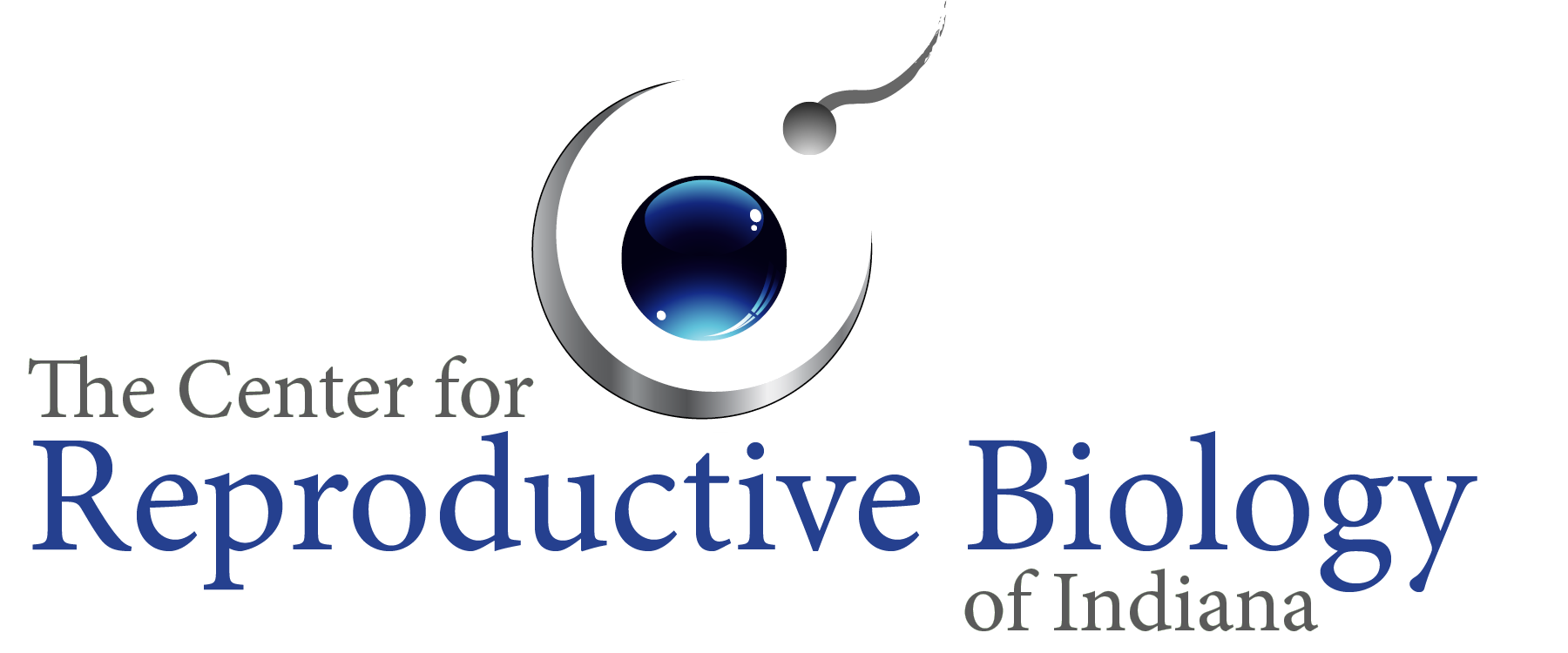At The Center for Reproductive Biology of Indiana, we have a state-of-the-art IVF lab that is here to help you accomplish your dreams of conceiving a child. The lab is inspected and accredited by COLLEGE OF AMERICAN PATHOLOGISTS (CAP) every two years, in accordance with the Clinical Laboratory Improvement Amendments (CLIA) standards. It is registered with, and inspected by, the FDA. We adhere to the guidelines set forth in our field by the American Society for Reproductive Medicine (ASRM), and submit the outcomes of all our IVF cycles to the Society for Assisted Reproductive Technology (SART) for annual reporting.
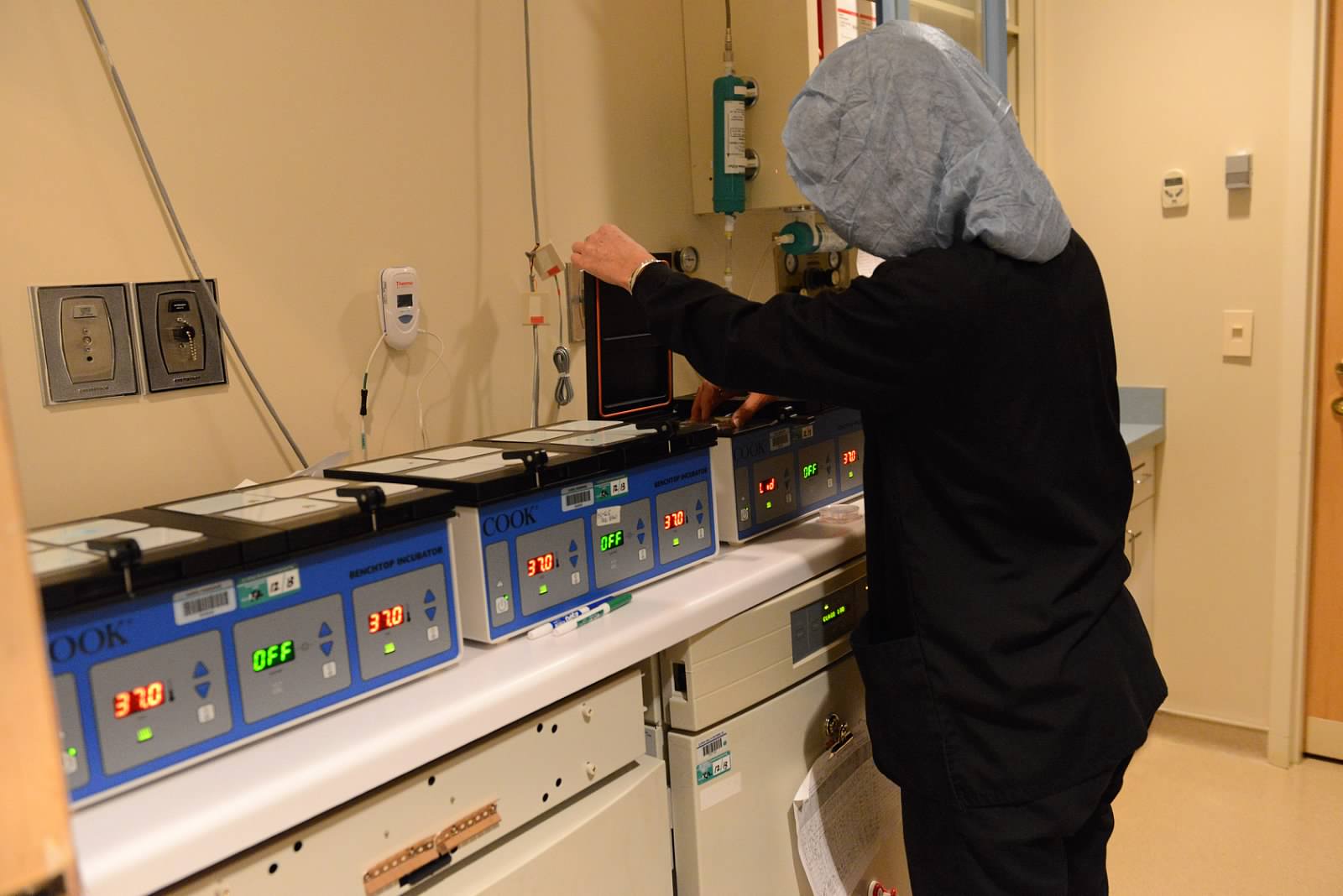
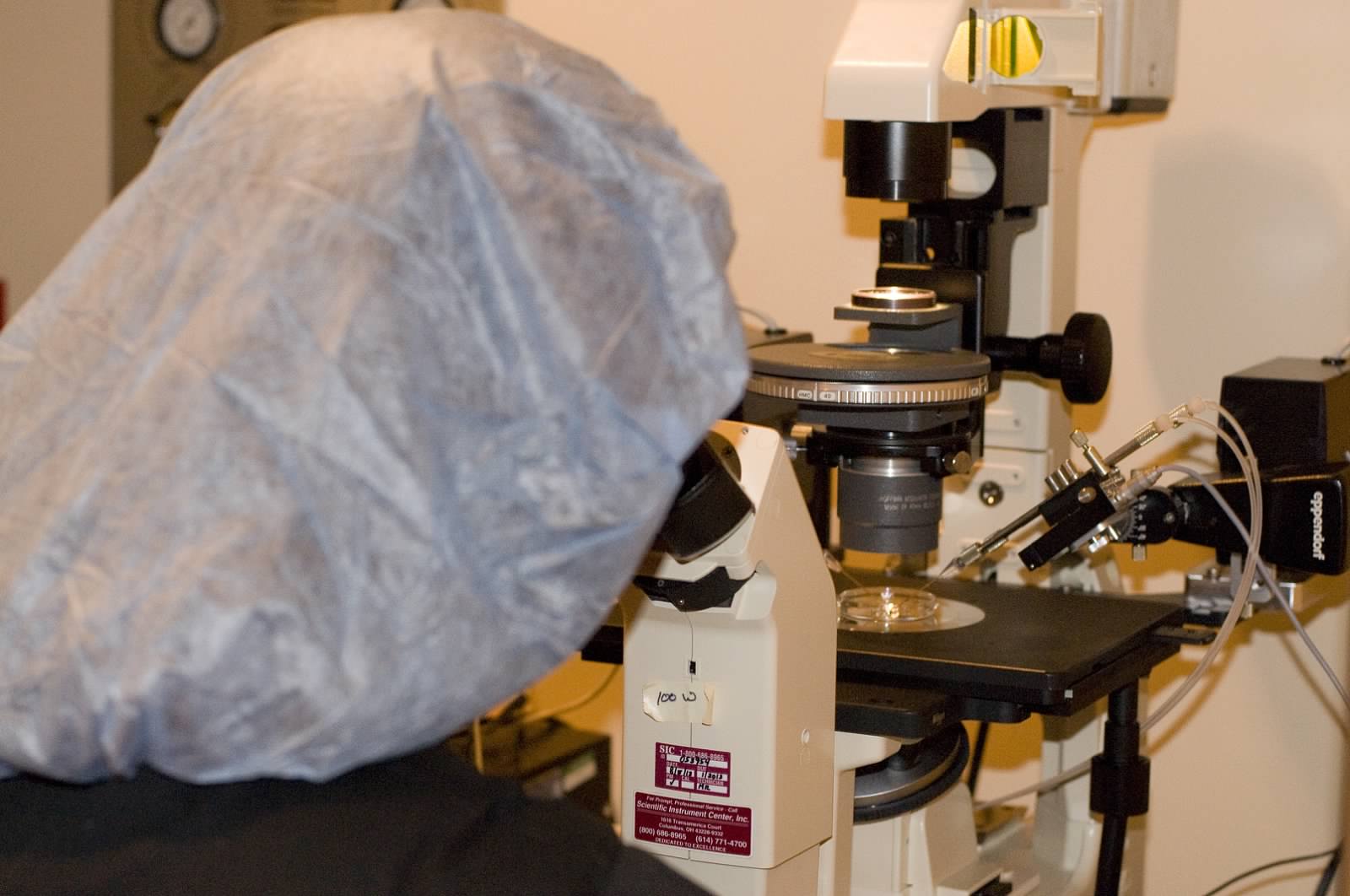
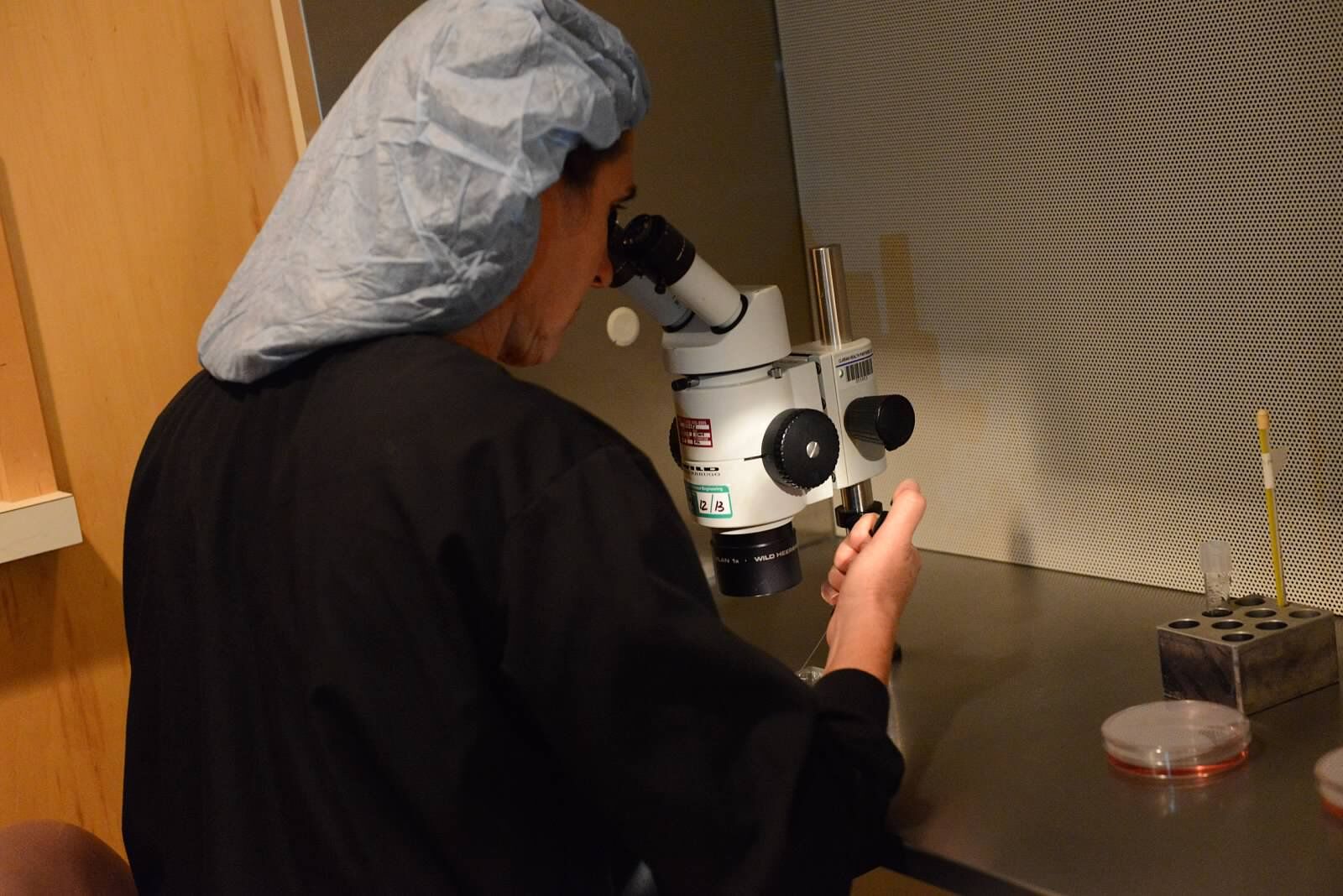
What Happens in our IVF Laboratory?
Day 0 (Day of Oocyte Retrieval):
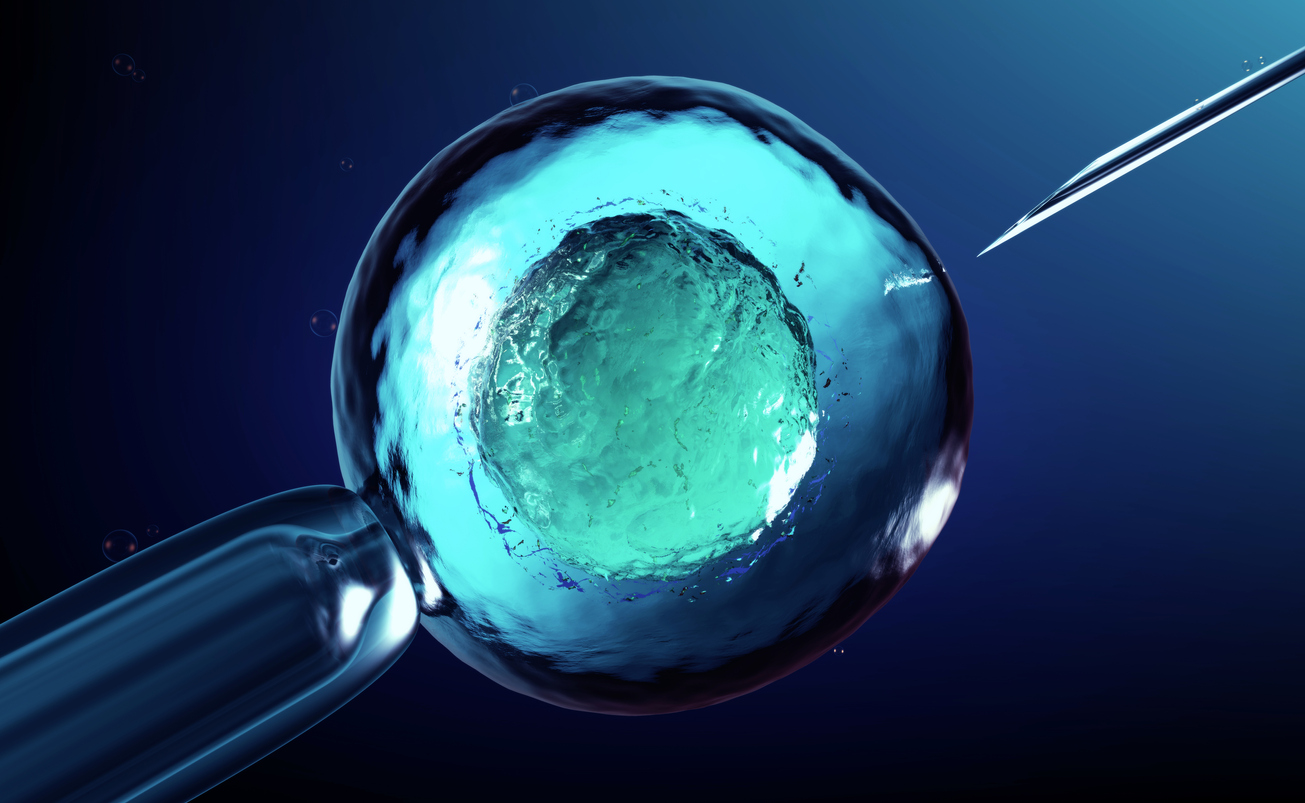
• The eggs are collected and the sperm sample is processed.
• The eggs are fertilized by either intracytoplasmic sperm injection (ICSI), or by conventional insemination (cIVF), and then checked approximately 18 hours later to see if the fertilization process was successful.
Day 1 (Fertilization Check):
• An embryologist will briefly remove the eggs from their culturing incubator to evaluate their cellular appearance using a microscope. On Day
1, an egg should show evidence of fertilization about 18 hours after it was either injected or inseminated with sperm.
• An embryologist will call the patients on Day 1 to let the patients know how things are going in the lab and to give patients the opportunity to
ask any questions they have at that time.

Normally Fertilized Egg
(pronuclei are the faint circular
structures in the center)
Day 5 and Day 6:
• An embryologist will evaluate the growth of the embryos on the morning of Day 5 and again on Day 6. This is when decisions are made regarding which embryo(s) to transfer, cryopreserve, or biopsy if PGT is being utilized.
• If pre-implantation genetic testing (PGT) is planned, the embryo is biopsied on day 5 or 6 and samples will be sent to a genetics lab for appropriate testing. During biopsy, a few trophectoderm cells are removed for diagnosis while the embryo is cryopreserved and stored safely at CRBI. Only the biopsied cells will be shipped for diagnostic testing.

Morula

Blastocyst




